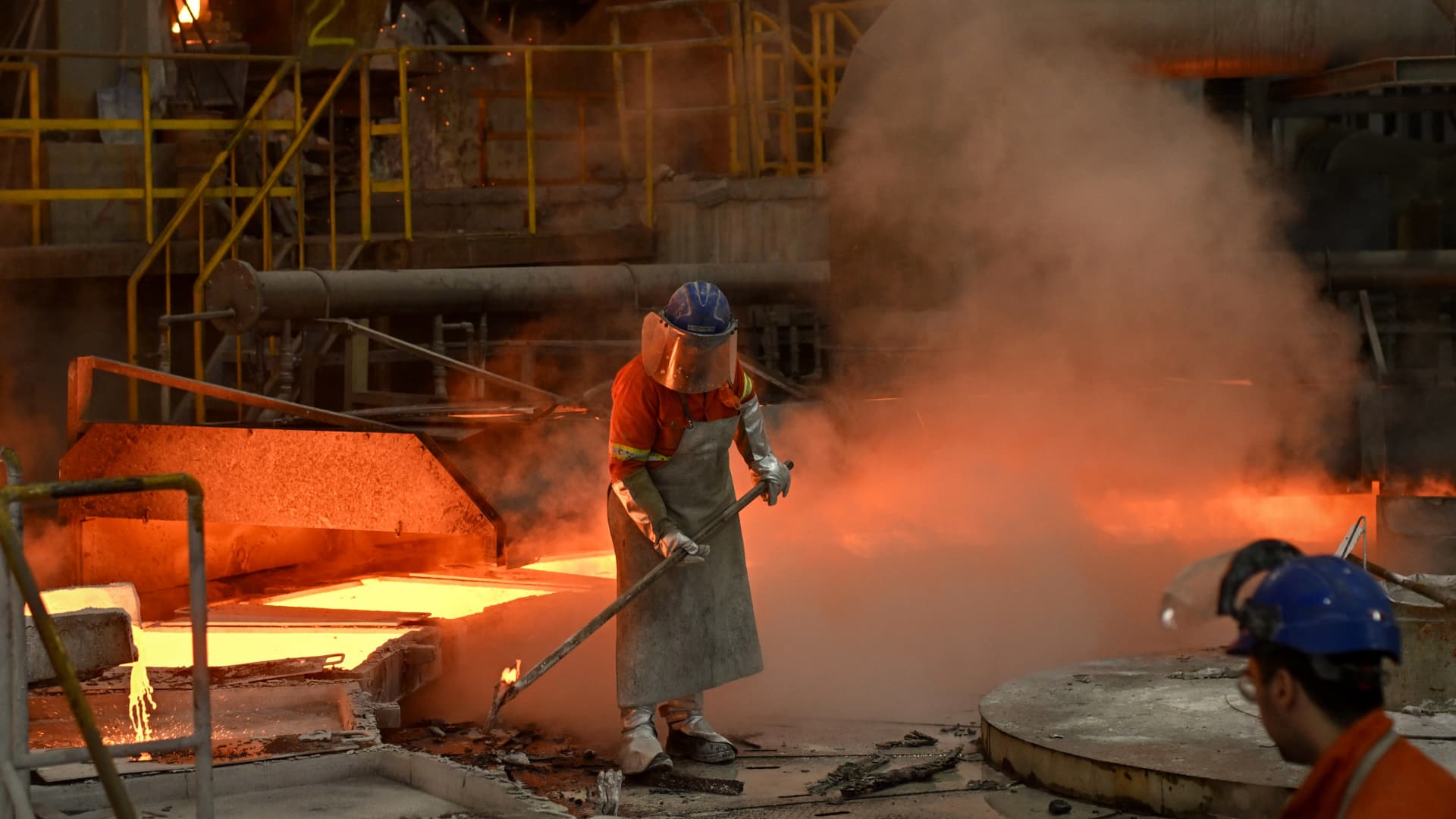World
‘A real wildcard’: World’s largest wealth fund issues inflation warning on hot commodity markets

Nicolai Tangen, chief executive officer of Norges Bank Investment Management, during a news conference in Oslo, Norway, on Tuesday, Jan. 30, 2024.
Bloomberg | Bloomberg | Getty Images
The chief executive of the world’s largest wealth fund says there are many wild cards in financial markets right now, but the “big worry” for investors is what a commodities rally could mean for the inflation outlook.
Nicolai Tangen, CEO of the Norges Bank Investment Management (NBIM), told CNBC’s “Squawk Box Europe” on Tuesday that soaring energy and raw material prices could prove to be a significant headache for major central banks as they continue to fight inflation.
As of Tuesday afternoon, the S&P GSCI, a benchmark index that tracks the performance of global commodities, had jumped 9% since the start of the year, outpacing the broad S&P 500 index.
Oil and copper prices have climbed around 13%, respectively, year-to-date, while gold has repeatedly notched fresh record highs in recent months.
Asked whether he had any concerns about hot commodity markets, NBIM’s Tangen replied, “Yes, the big worry is just what that could mean for inflation right?”
He added, “So, if energy and raw material prices continue to move up, that is going to feed through to end-product prices, which are going to be higher. And that could be the real wildcard when it comes to inflation expectation.”
NBIM manages the so-called Norwegian Government Pension Fund Global. The world’s largest sovereign wealth fund, which was valued at 17.7 trillion kroner ($1.6 trillion) at the end of March, was established in the 1990s to invest the surplus revenues of Norway’s oil and gas sector.
To date, the fund has put money in more than 8,800 companies in over 70 countries around the world, making it one of the largest investors across the globe.
Fewer rate cuts
European Central Bank President Christine Lagarde had also signaled the impact of commodity prices last week, in the broader context of the institutions next monetary policy steps. She said the central bank remains on course to cut rates, barring any major shocks — but stressed that the ECB would need to be “extremely attentive” to commodity price movements.
“Clearly on energy and on food, it has a direct and rapid impact,” Lagarde said.
Euro zone inflation slowed by more than expected to 2.4% March, bolstering expectations of a near-term rate cut. Market pricing for interest rate cuts, which has been highly volatile in recent weeks, now also points to the ECB appearing set to ease monetary policy before the U.S. Federal Reserve.
With most readings putting U.S. inflation at around 3% and not moving appreciably for several months, traders on Tuesday afternoon were pricing in a 13% chance of a U.S. rate cut in June, according to the CME Group’s FedWatch tool. That’s down from nearly 70% last month.
A worker supervises the furnace in the foundry at the ZiJIn Serbia Copper plant in Bor, Serbia, on Thursday, April 18, 2024. Copper prices have rallied recently, driven by an improving outlook for global manufacturing and mine disruptions.
Bloomberg | Bloomberg | Getty Images
Tangen said Norway’s wealth fund continued to believe it would be “tough” for central banks to get inflation down toward target levels, and major central banks would move differently, depending on local inflationary pressures.
Acknowledging multiple factors that now underpin inflation, Tangen said, “You have some of the geopolitical tensions, you have near-shoring, you have the climate effect on food through the world’s harvest, you’ve got some changes in trading routes and so on, and wage inflation is also higher than perhaps we had expected.”
He added, “We are expecting fewer rate cuts than the market did, of course, earlier in the year. I have to say my surprise is that the market has taken it so well. I would have expected the market to have reacted more negatively to this postponement of interest rate cuts.”
— CNBC’s Jeff Cox contributed to this report.




